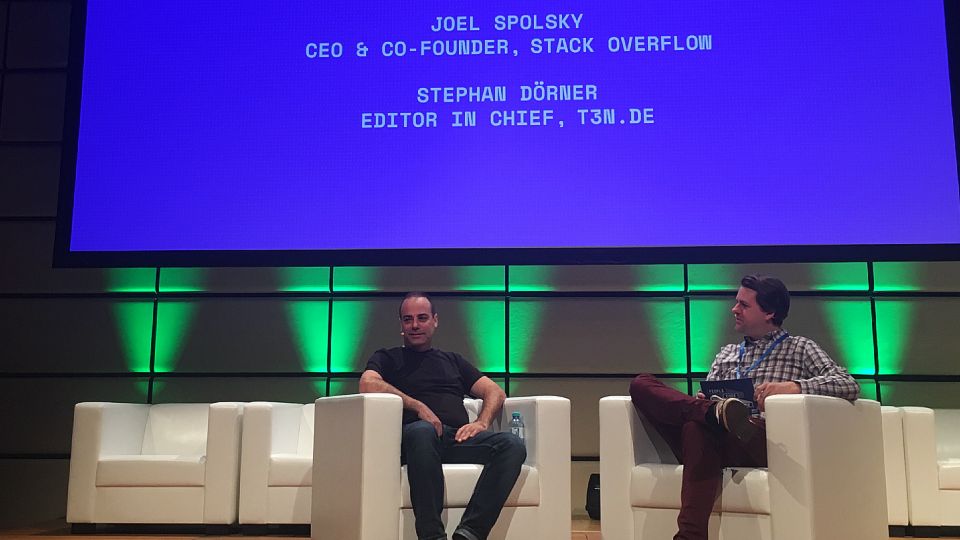Key Takeaways From Joel’s Spolsky’s WeAreDevelopers 2018 Closing Keynote
During this year’s We Are Developers conference, I had a chance to attend two of Joel’s sessions. The first was a fireside chat and the second a massive closing keynote about the past, present, and future of the community.

The sessions ended up being a source of entertainment more than anything else, but I’d like to reflect on three interesting things: something funny, something practical, and something thought-provoking.
Fucking Timezones!
I got Joel to answer two of my questions. One of which was “What’s the best question you’ve ever seen on StackOverflow?” and the answer was quite fun. Joel chose this one:
Why is subtracting these two times (in 1927) giving a strange result? Subtracting
1927-12-31 23:54:07and1927-12-31 23:54:08returns353, not1as we might expect.
I highly recommend going through Jon Skeet’s answer. Especially if you’re interested in the two major fuckeries that developers hate the most: timezones and politics. [citation needed?]
The Joel Test 2.0?
I’ve seen a lot of people wonder if the Joel Test could use an update. I asked Joel and actually got to hear his thoughts on the matter. While he agrees that some points such as “Do you use source control?” are perhaps obsolete, the test still serves its purpose. And what’s the purpose supposed to be again? To paraphrase Joel:
To distinguish between teams that are just hacking things up and teams that have implemented a working process.
The One-Year Challenge
Look around the room you’re in…
We Are Developers 2018 (held in Vienna) felt like a relatively diverse conference. At least in terms of gender and age groups. They did their best to include more women via direct outreach, by inviting female speakers, and by using diversity tickets.
But the fact remains that this is an industry that’s dominated by one major group. I am reminded of that whenever I look at my own office space or attend a local conference here in Serbia.
It’s good to remind ourselves that our goal shouldn’t be to play with numbers. Our goal isn’t optimizing for the size of group X in our organization. It’s not about “look how diverse we are!”
It’s about people.
Our goal is to make everyone welcome. Not just to make them feel welcome, but to actually act on that promise. We need to take responsibility for how we greet people into our field. And this is isn’t easy. Quite frankly, we suck at it. Even basic kindness is something we struggle with.
StackOverflow is, admittedly, also pretty bad at it. Honestly, Joel didn’t offer any specific solution, but he did seem honest about trying to fix this. At the end of his talk, he issued a challenge. (And I will paraphrase once again!)
Think about this for one year. Really think about it. Work on it. And let’s meet here in one year and see what we’ve come up with. Let’s see what we can do to solve this.
I think I’ll take Joel up on the challenge. How about you?
Let me know what you think via Twitter!
Update (2018/11/13)
- StackOverflow now has a Code of Conduct that clearly outlines what sort of behaviour is no longer welcome on the site.
- They’re making it easier to report violations of the CoC.
- In a similar fashion such as GitHub, they added a new contributor indicator that should promote a kind, open-minded treatment of people who just started using SO.